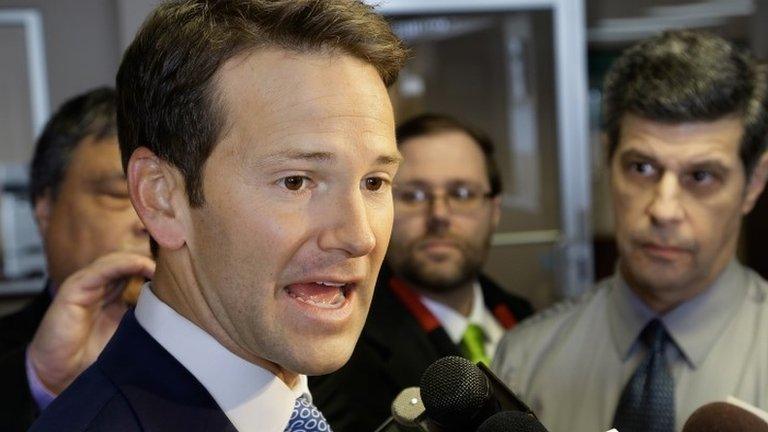US Congress: Republicans vote to limit ethics body
- Published
- comments
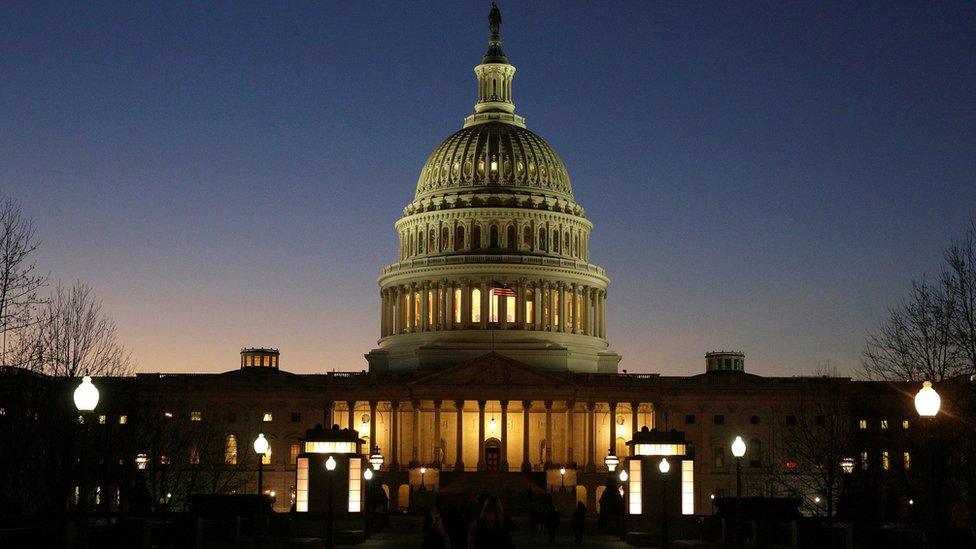
The 115th US Congress meets for the first time on Tuesday
Republicans in the US House of Representatives have voted to weaken the body that investigates claims of misconduct against members of Congress.
The independent Office of Congressional Ethics would come under control of a House committee, if it goes ahead.
The newly elected Congress meets later and the full House will vote on the proposed new rules.
But Republican leaders in the House opposed the change and President-elect Donald Trump has questioned its value.
"Focus on tax reform, healthcare and so many other things of far greater importance!" he said in a tweet.
Democrats reacted also angrily to the vote, which happened behind closed doors on a bank holiday evening.
It came on the eve of the start of a major power shift in Washington, with Republicans now holding all the levers of power for the first time in nine years.
But its supporters say it will enhance ethics supervision because the office had conducted witch-hunts against both parties.

What does this change do?
The proposals, tabled in an amendment to House rules, external by Congressman Bob Goodlatte, would weaken the body's oversight of matters such as conflicts of interests and financial impropriety.
If the new rules package is voted in - as is likely as the Republicans have a clear majority - the Office of Congressional Ethics (OCE) would be renamed the Office of Congressional Complaint Review.
Under the proposals the new body would no longer be able to receive anonymous tip-offs, nor have a spokesperson, and would be under the supervision of the House Ethics Committee. Accusations against lawmakers would not be made public, as they are currently.
Any referral to law enforcement agencies would have to be approved by members of the committee.

What has been the reaction?
Democratic leader in the House, Nancy Pelosi, said the amendment to the rules would effectively destroy the Office of Congressional Ethics (OCE).
"Republicans claim they want to 'drain the swamp,' but the night before the new Congress gets sworn in, the House GOP [Republican Party] has eliminated the only independent ethics oversight of their actions," she said in a statement, external.
"Evidently, ethics are the first casualty of the new Republican Congress".
During his election campaign, President-elect Donald Trump repeatedly vowed to "drain the swamp" of Washington politics, claiming the federal government was corrupt and dysfunctional. He has not commented on the proposals for the ethics body.
How might Trump 'drain the swamp'?
Democratic Senator Elizabeth Warren also decried the amendment:
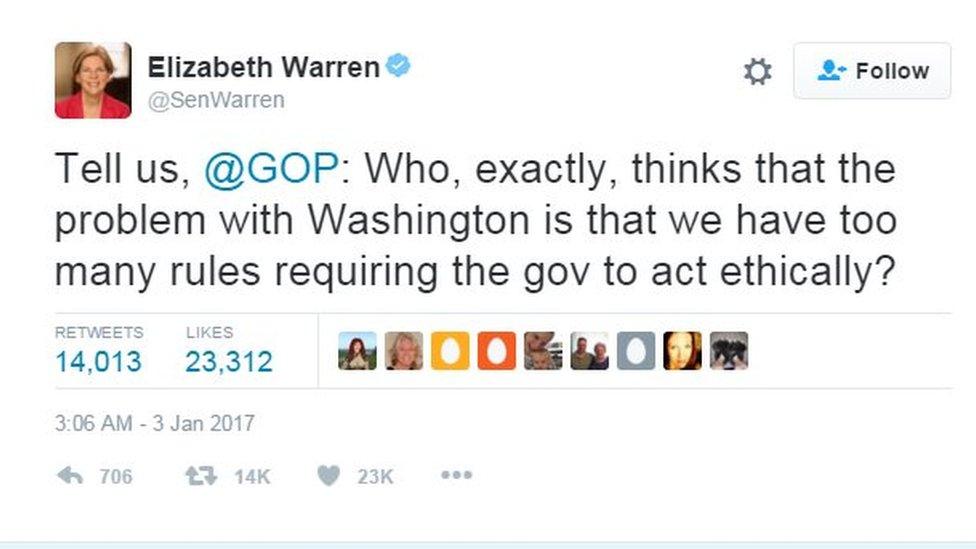
While House Speaker Paul Ryan and Majority Leader Kevin McCarthy were reportedly opposed to the amendment, Rep. Goodlatte - chair of a House committee - introduced it anyway.
Rank and file members voted to support it in a closed session of the House Republican Conference.
There was no advance notice of the move, which came late on a federal public holiday.
Grassroots anti-corruption organisation Common Cause described the move, external as "an unacceptable step backwards" by House Republicans.

Why was the OCE set up?
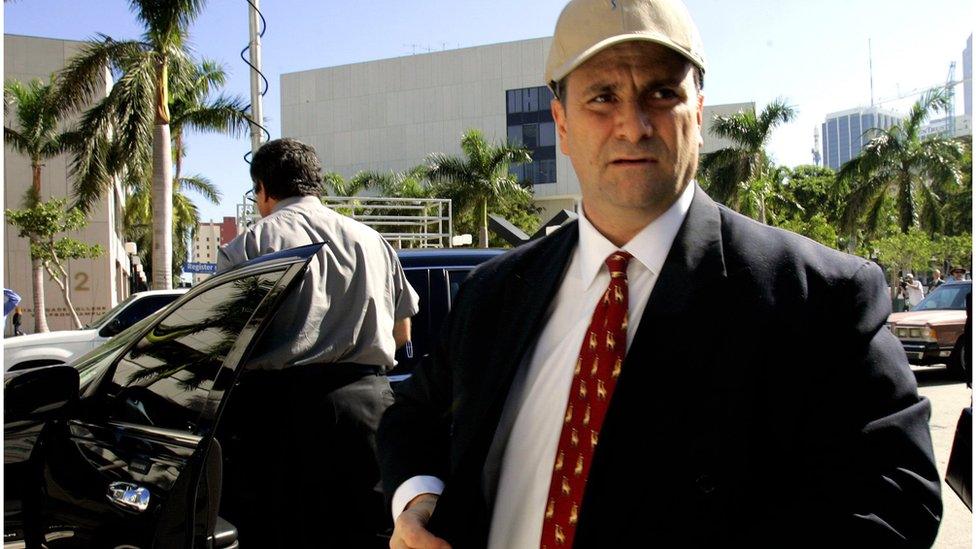
Lobbyist Jack Abramoff was jailed in 2006
The OCE, external was created in 2008 after a series of embarrassing scandals, including one involving lobbyist Jack Abramoff who was jailed for conspiracy and fraud.
Some felt that the House Ethics Committee had previously been held back from investigating wrongdoing by fellow members of the House of Representatives.
Ms Pelosi - then leader of a Democrat-controlled House - spearheaded the efforts to reform oversight of Congress and shed light on the often murky world of Washington lobbying after the Abramoff scandal.
Other notable cases in the preceding Republican-controlled Congress were those involving once senior Republican Representative Tom DeLay (whose conviction for money laundering was overturned on appeal) and fellow Republican Randy Cunningham, jailed for eight years in 2006 for taking bribes.

What else is on the new Congress's agenda?
The new US congress is most diverse ever - but is it enough?
After their success in November's elections, Republicans will control both houses in the new session of the US Congress.
Once Mr Trump is inaugurated on 20 January, the party will control both Congress and the presidency for the first time since 2007.
This will mean Republicans could be well placed to carry out plans such as:
Repealing as much of President Barack Obama's flagship healthcare reforms - known as "Obamacare" - as they can
Confirming Mr Trump's cabinet appointments and an expected Supreme Court nomination
Cutting taxes
Getting rid of Obama-era regulations in areas such as industrial emissions and the financial industry

How come the House gets to decide on its own ethics oversight body?
The US constitution says that, external "each House may determine the Rules of its Proceedings", so at the start of each new Congress, the House of Representatives has to approve its own rules and regulations.
The House of Representatives is the lower house of the US Congress and all its 435 members are elected every two years.
What does all this US jargon mean?
- Published3 January 2017

- Published1 December 2016
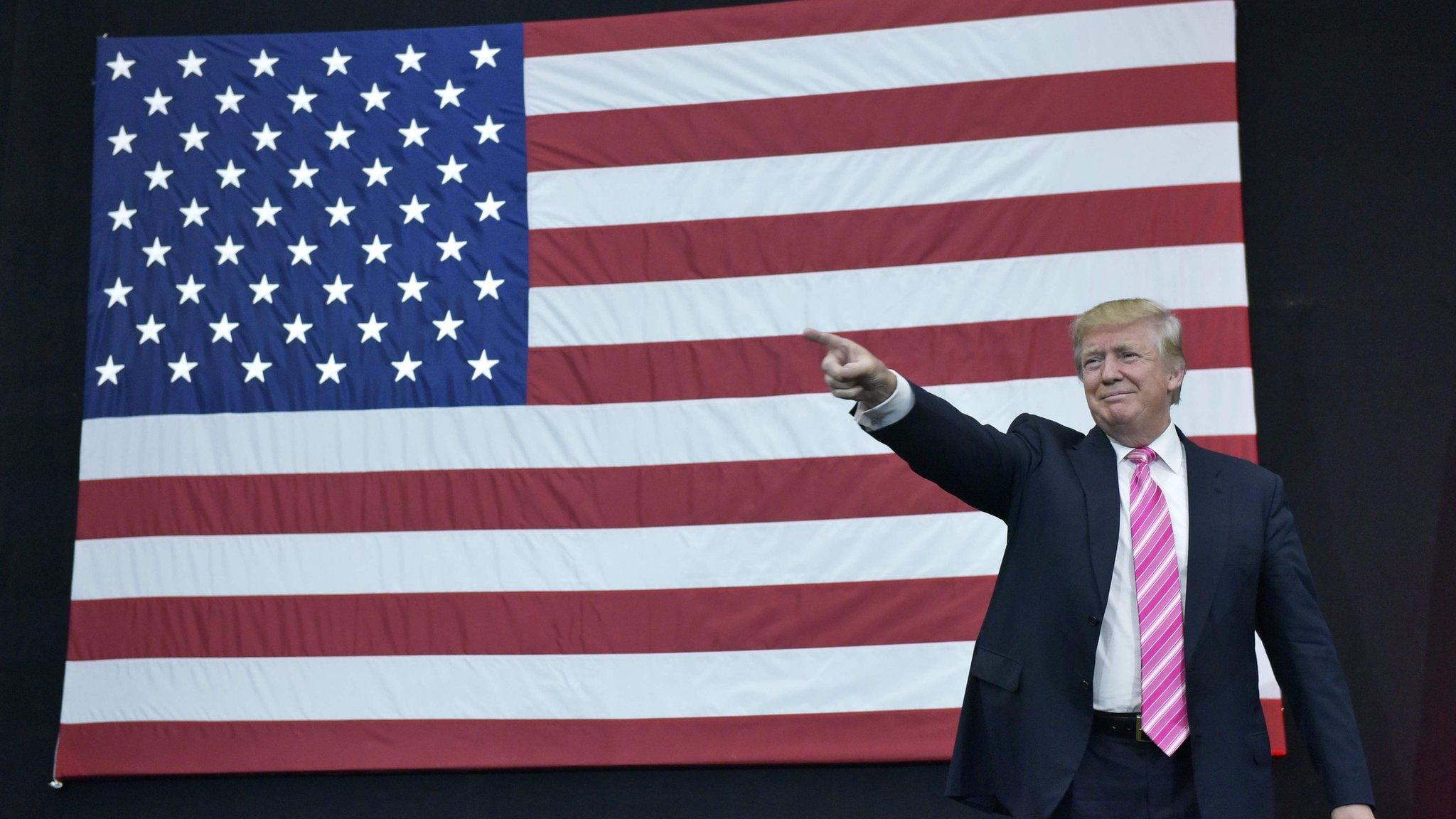
- Published20 December 2016

- Published9 November 2016
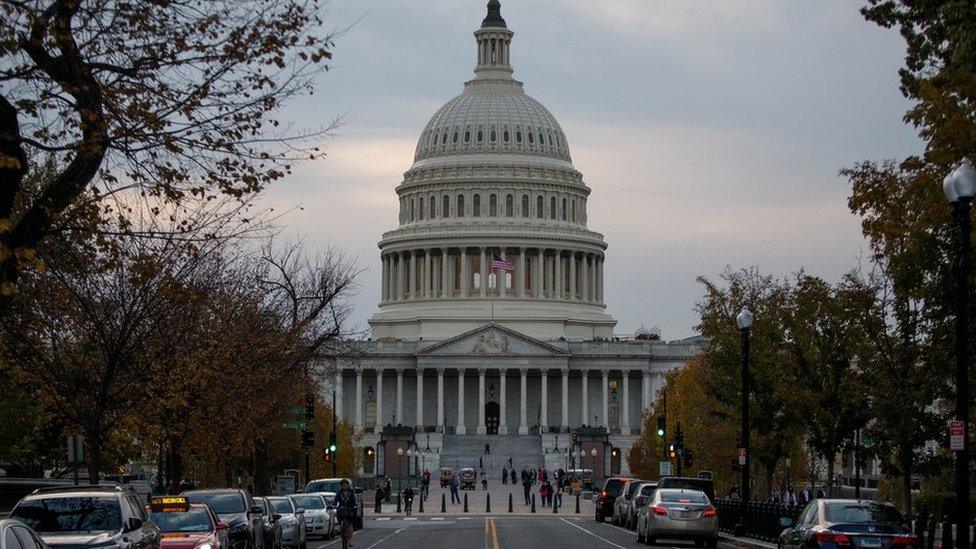
- Published18 October 2016
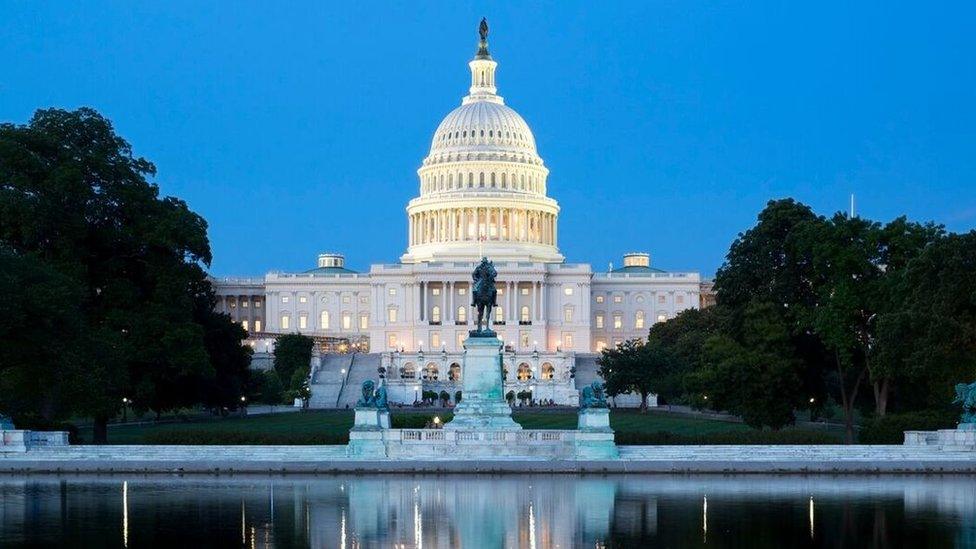
- Published17 March 2015
